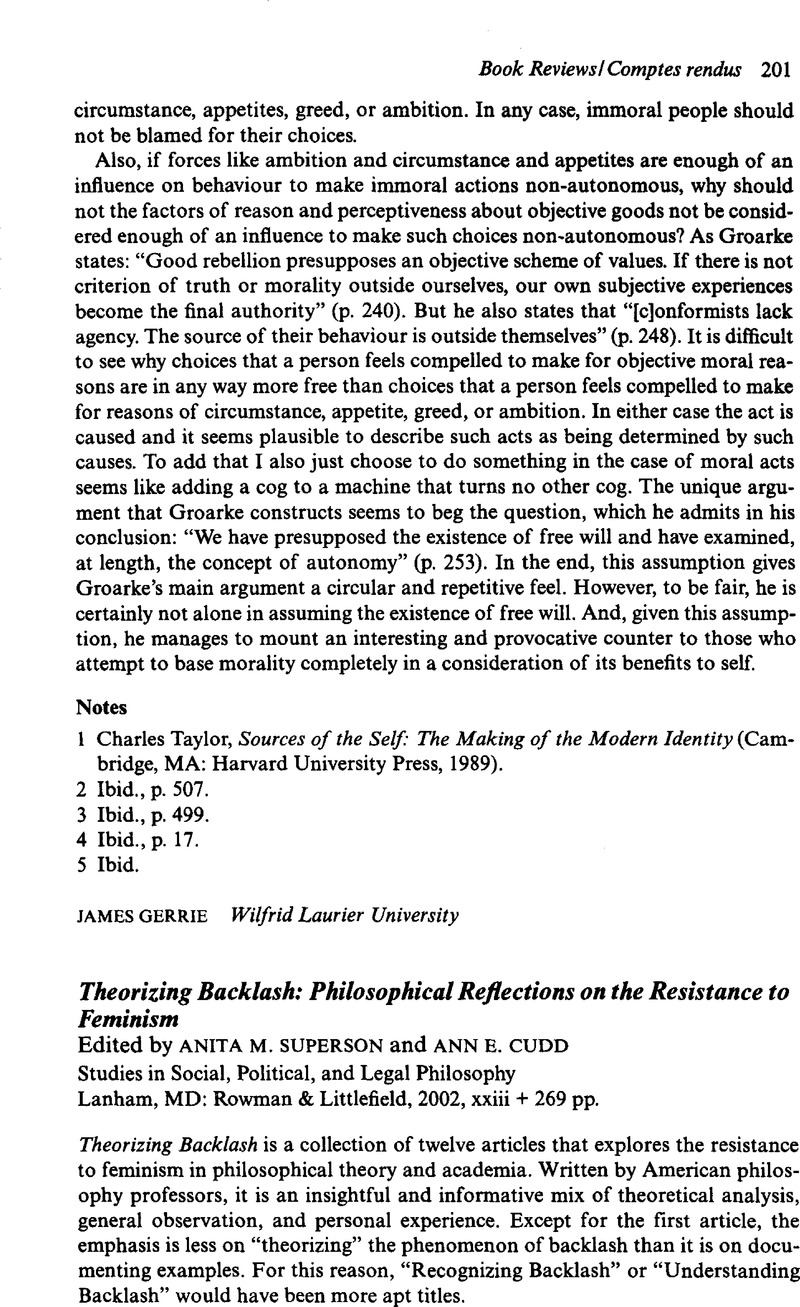No CrossRef data available.
Published online by Cambridge University Press: 13 April 2010

1 Schiebinger, Londa, for example, shows how the history of women in science “has not been characterized by a march of progress but by cycles of advancement and retrenchment” in her Has Feminism Changed Science (Cambridge: Harvard University Press, 1999), p. 32Google Scholar. Noble, David, in A World without Women (New York: Knopf, 1992)Google Scholar, shows how women's participation in religion since the birth of Christianity, although generally restricted by patriarchy, flourished remarkably in some periods while declining in others. And Murray, A. M., in Women Becoming Mathematicians (Cambridge, MA: MIT Press, 2000)Google Scholar, looks at women receiving PhDs in mathematics in the 1940s and 1950s, a period following a dramatic drop in numbers from the 1920s, numbers that did not begin to recuperate until the 1980s.
2 See Bell, Linda A.'s compilation of what philosophers have said about women in Visions of Women (Clifton, NJ: Humana Press, 1983).Google Scholar
3 This is a hot issue in Canada as well, as the equity debate at the University of Toronto in 2002 attests to. For a quick overview, see www.safs.ca/utmain.html.
4 In the late 1990s, a petition had to be passed to have the Feminism and Philosophy course taught at my former university. It had been listed in the school calendar every year, but not taught since the early 1990s.